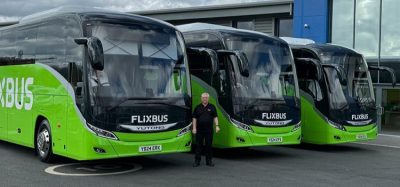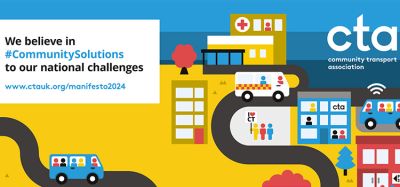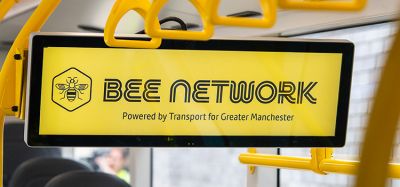How Cambridge is putting the ‘smart’ in smart cities
- Like
- Digg
- Del
- Tumblr
- VKontakte
- Buffer
- Love This
- Odnoklassniki
- Meneame
- Blogger
- Amazon
- Yahoo Mail
- Gmail
- AOL
- Newsvine
- HackerNews
- Evernote
- MySpace
- Mail.ru
- Viadeo
- Line
- Comments
- Yummly
- SMS
- Viber
- Telegram
- Subscribe
- Skype
- Facebook Messenger
- Kakao
- LiveJournal
- Yammer
- Edgar
- Fintel
- Mix
- Instapaper
- Copy Link
Posted: 22 March 2017 | Rachael Harper (Intelligent Transport) | No comments yet
With Cambridge today launching the first phase of its cutting-edge Intelligent City Platform (iCP) we delve deeper into what makes a city ‘smart’ in regards to transportation and what the city of Cambridge is implementing to make sure it’s at the forefront of said technologies…
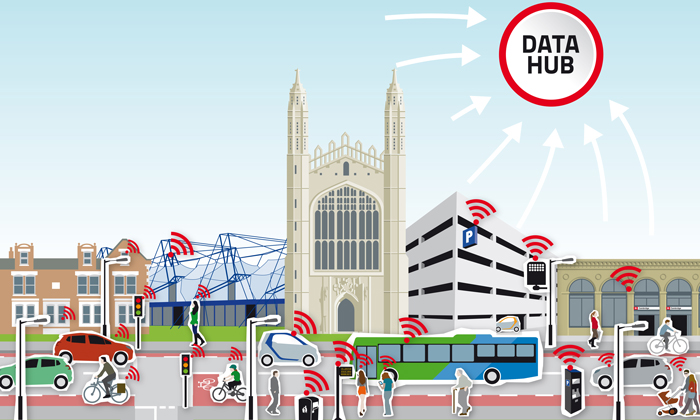

So, what makes a smart city? A basic definition is that it is an improvement of urban environments using technologies that work together to do so. Connecting Cambridgeshire, which is ‘working to ensure businesses, residents and public services can make the most of opportunities offered by a fast-changing digital world’ breaks the areas of improvement down to four categories:
- Transport: making travel easier, reducing congestion, and exploring intelligent mobility
- Environment: managing our water, energy, air quality and waste
- Healthcare: catering for an ageing population and providing public health
- Smart living: improving the quality of life for communities in and around the city.
Artur Perchel, the UITP’s Manager – Central Eastern Europe and Israel, describes the benefits of smart cities as “intelligent urban solutions [that] help not only to manage daily problems and make cities more competitive, but also to advance the quality of urban life.”
In regards to smart cities and transport, he goes on to say: “Optimising and integrating virtually all urban operations and services, smart cities have become a key notion of many urban decision-makers and their respective development agendas.”
He examples various European smart city approaches, such the ‘Virtual Warsaw’ project which focuses on intelligent solutions to help the visually impaired to successfully navigate the city, as well as Krakow which has introduced its first multi-modal bus station.
You can read Mr Perchel’s full article in Intelligent Transport Issue 6 2016 or here.
Smart Cambridge
So, what is Cambridge doing to improve urban living with a smarter use of technology? Well, the first phase is the launch (on 21 March) of its Intelligent City Platform, which Smart Cambridge has developed with the University of Cambridge to take real-time data from an array of sensors across the city to support myriad smart solutions.
Smart Cambridge, which is a workforce established by the Greater Cambridge City Deal, is harnessing emerging technologies to improve the economic strength and sustainability of the area in association with local councils, technology businesses, university researchers and partner organisations.
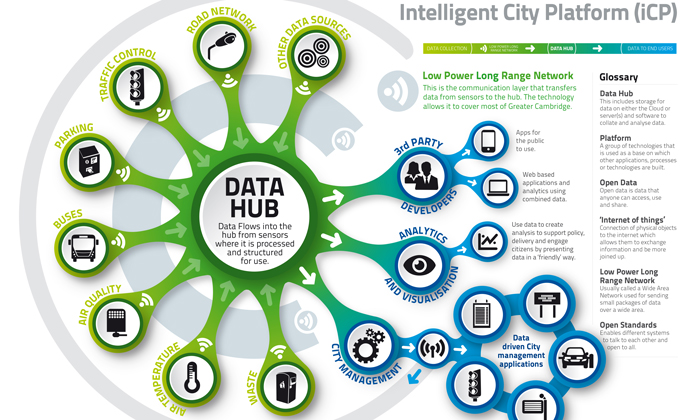

The Intelligent City Platform (credit: Smart Cambridge)
The projects
The launch, which was attended by leading business, academic, local government, smart city and technology representatives from across the region and held at Microsoft Research, discussed the pioneering ‘smart’ projects the programme has in the pipeline.
These projects included the MotionMap mobile travel app (developed by local tech company Building Intellect Ltd) which shows real-time data that can be used to accurately predict bus times to improve people’s journeys and encourage them to use more sustainable methods of transport. The app will be launched this summer as part of a series of data-sharing events to involve residents and businesses in developing smart solutions for the city.
Another project is the new LoRa (low power long range) network which has been set up with Cambridge University to transfer data flowing from the iCP sensors to the data hub, so it can be analysed and visualised to plan smart solutions, including making transport systems more reliable and easier to use. This will collate real-time data to ‘test bed’ innovative applications including the new Cambridge mobile travel app.
“We have a unique opportunity to harness the brainpower and business might of Greater Cambridge to find innovative solutions to challenges faced by our region, and indeed all growing cities,” said Councillor Francis Burkitt, Vice Chair of the Greater Cambridge City Deal Executive Board. “That’s why taking a collaborative approach is the best way forward for Smart Cambridge and could lead the way forward for other smart cities.”
The future
The next phase of the Smart Cambridge programme will build upon the studies already underway to investigate intelligent mobility including integrated ticketing and online payments, trialling driverless vehicles and the feasibility of an AVRT (advanced very rapid transit system) for Cambridge and the surrounding areas.
Technical companies in Cambridge are also being encouraged to drive forward Internet of Things (IoT) innovation during 2017 to help find real world solutions to key city challenges through the IoTUKBoost programme.
And what is the long-term strategy for Smart Cambridge? Over the next three years the programme aims to achieve:
- Better travel and transport information for journeys
- Easier payment options including integrated ticketing and online payments
- Smarter signalling
- Monitoring of air quality
- Future transport initiatives including driverless vehicles.
The future of transport is certainly bright, and if more cities like Cambridge implement and utilise the many exciting technologies that are in the pipeline, it will also be smart.
For more information on Smart Cambridge, visit www.connectingcambridgeshire.co.uk/smartcamb/ or read the brochure.
Related topics
Business Models, Fleet Management & Maintenance, IoT (Internet of Things), Multimodality, Ticketing & Payments, Transport Governance & Policy
Related organisations
Connecting Cambridgeshire





